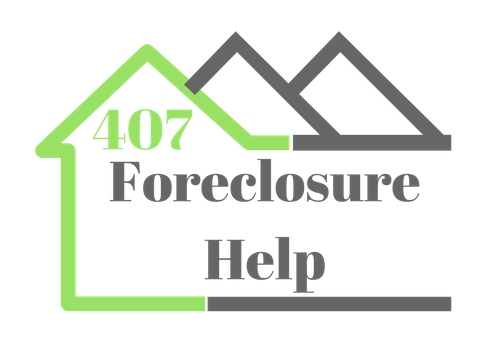What is eviction?
In Florida Laws that handle eviction are strict. An “eviction” is when a landlord forces a tenant to move out the property. In order to successfully conduct an eviction and get the tenant off the property, the landlord must follow all the proper steps. Prior to the eviction notice, these following things must have taken place:
- The tenant gets a written notice to exit the premises
- The tenant is then served with a summons and complaint. These legal documents must be delivered by a sheriff or another authorized process server.
- The tenant is then allowed to respond, and, in some cases, this involves going to court.
- A Writ of Possession is posted.
Protect Yourself from Shady Landlords
Some landlords will resort to shutting off the water, electricity or gas, or even change the door locks to force the tenant to move. Some may even try to take property from your home. All these tactics are illegal and if you find yourself in this situation you should call the police and your lawyer.
In Florida, landlords that take part in illegal practices may be held accountable for paying the tenants rent for up to three months. This could be even greater if the landlord has cost you more than three months rent. To achieve these results though, you as a tenant will have to take the landlord to court over what is known as “damages”.
Steps to A Legal Eviction
Step 1 – The Written Notice
In the first step of the eviction notice, the landlord will write you a written notice indicating the eviction process. There are a few reasons to why you would receive a written notice to vacate”
- Failing to Pay Rent- Before being evicted your landlord must give you a written notice. The notice must be in writing and give you up to 3 days to pay the rent or leave. The 3-day period does not include the day the notice is given, holidays, or weekends. If you are able and offer to pay the amount in full within that time the landlord must accept. If it is anything less than the full amount the landlord is not obligated to accept.
- Breaking Terms in the Lease- If you break any of the rules written on your lease the landlord has the ability to evict you. Unlike missing rent payments, this eviction results from something specific the tenant did or failed to do. Common reasons that some landlords will evict their tenants include; property damage or no upkeep (keeping the property dirty), being too loud, parking in incorrect spots and allowing animals and other people on the property that are not allowed. With this eviction, the landlord must give a 7-day notice. The notice must indicate what the tenant has done wrong and let them know that they are being evicted. The landlord must allow the tenant to fix or “cure” the problem at least once. If the tenant fixes the problem nothing else needs to be done. If the same thing occurs within 12 months though, the tenant will be given another 7-day notice for eviction but this time without the option to fix the problem. Also, note that in cases that are considered more serious such as property damage or misuse of the property then the landlord can send the initial 7-day notice without a chance to fix the problem.
Does a Notice of Lease Termination Mean You Have to Move Right Away?
No! You are legally allowed to stay in your home until you are sued, and the case has been decided by the judge. If you think you might lose in court you can move before the case is filed. Eviction cases are public record and will be available to any future landlords which may influence their decision to rent to you. In certain cases, losing an eviction case the judge can make you pay even more including the landlord’s courts costs and attorney fees.
Step 2 – Summons and Complaint
If the tenant refuses to move out, then the landlord can sue to remove them from the property. If after the notice to vacate and the tenant failed to provide a fix to the problem the landlord can now pay a fee and file papers called a “complaint” with the Clerk of Court to begin a lawsuit. The tenant will also be served a copy of the summons and complaint about evictions. The papers may be left on the tenant’s door and sent a copy in the mail.
Step 3 – Tenant Response
After receiving and being served the summons and complaint from your landlord this is a very important time to make sure you are informed. To answer the complaint:
- After being served with the complaint you should contact a lawyer at once. Waiting until a few days in the process is very harmful to your defense as it greatly reduces your time to prepare a good defense. Florida law also permits property managers file a complaint. However, the eviction case stops once the tenant files an answer. When the actual owner of the property takes over in court then the case will resume.
- The tenant has 5 days to answer the complaint and the days are counted based on the date of service by the sheriff or the date of posting on the door. Not from the mailing clerk. The 5 days will begin the day after the tenant was served and once again does not include weekdays and legal holidays.
- If you have received a complaint as a tenant, you must go to the Clerk of Court to file an answer. Their response must be in writing listing your property defenses, the reasons you should not be evicted. You must file your answer with the Clerk of Court and mail a copy to your landlord in the same 5 days.
- If you owe any rent, you must also give the amount listed in the complaint to the court. If you have already paid the landlord and included that in your defense, you will not be required to do this.
- If you do not answer the complaint the landlord can obtain a “default judgment” against you. A default judgment means that the landlord wins the case and you, the tenant, will be evicted. If you owe money and you do not pay the landlord back, they may also be allowed to obtain a “default judgment”.
- As a tenant being sued you can disagree with how much you owe the landlord. To do this you must file a written motion to determine the amount of rent to be paid with the court along with your answer. In the motion, you should say why the amount should be different and asking the judge to determine the right amount. Attaching any proof such as receipts to the motion also can provide beneficial.
- During the court proceedings, the tenant is still required to deposit their monthly rent with the court as it comes due during the eviction process.
Step 4 – The Court House
After the filing of the complaint and answer, either the tenant or the landlord can set a hearing date. No date is set though if the tenant does not answer, does not deposit the correct amount of money with the court, or if the landlord gets a default judgment. If neither the tenant or landlord schedules the hearing the judge will.
Both the tenant and landlord will be notified of where and when the eviction hearing will take place. Both parties will also get the chance to present their cases before the judge. In most cases, only one hearing is needed. Make sure to bring anything you need or want with you to the court for they can consider. This can include your lease, photos, receipts or even another person if they have a testimony. Being well prepared, and respectful will help a lot in the court hearing.
If the tenant loses the case the judge will give the landlord a Judgement of Possession. If the tenant does not show, then the landlord wins automatically. The judge can also order at the end of the case so that the one who loses must pay the winners court costs and attorney fees.
Step 5 – The Eviction
If the landlord wins and gets a judgement for possession the court will issue a final 24-hour notice. This notice, called a “writ of possession” is given to the sheriff. Then the sheriff will go and post this notice on the tenant’s rental home.
The tenant has 24 hours to move out. If after 24 hours the tenant is still on the property, the sheriff or landlord can forcibly evict the tenant and padlock the door. This can be done with or without the tenant’s belongings inside, so it is critical that if you must leave you do it quickly and make sure to gather all your belongings. The landlord may even impose a lien on the belongings up to the amount of rent that is still due.




1 thought on “Dealing with Foreclosure? Here’s What You Should Know”